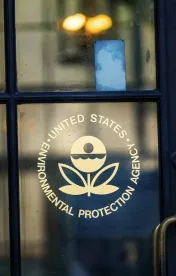The EPA’s bloated budgets have armed the agency with the ability to not only add new programs, but also enhance its core programs, including enforcement. With more money to hire, train and deploy inspectors and agents to find environmental infractions, more enforcement cases are inevitable. The gold standard of enforcement cases (from the EPA’s perspective) is the criminal case. Criminal cases give the EPA and state environmental agencies the media exposure they crave to spotlight its programs and promote deterrence (and thus compliance) and thereby to enhance environmental protection.
While a criminal environmental case may be a boon to the EPA, it can spell disaster for those targeted for criminal conduct. Violations of the primary EPA statutes – the Clean Water Act, the Clean Air Act and the Resource Conservation and Recovery Act (regulating management of hazardous wastes) – normally are charged as felonies and can carry substantial prison time and monetary penalties. A conviction can also trigger automatic debarment from federal contracting and grants. Defending an environmental crimes case is a costly and time-consuming endeavor, requiring specialized counsel and technical experts, and can spell the end for a company that is not well-funded.
From a legal standpoint, virtually any environment violation can be a crime because all that the government must prove, in addition to the violation, is that it was done “knowingly,” which is not difficult to prove. For example, permit excursions commonly result in civil enforcement actions under the Clean Water Act, the Clean Air Act, and other statutes. A civil violation occurs when a permittee discharges pollutants from its facility in violation of permit limits whether or not facility operators were aware of or intended the excessive discharge. When operators are aware of conditions that may cause an excursion, such excursions become “knowing discharges” and can be felony violations of the applicable statute and punishable by prison.
Thus, if an operational malfunction in a plant occurs and causes an excursion, the first occurrence may be a civil violation, but the next one, if “known,” is a felony. (It should be noted as that most permits state that being required to shut down operations to avoid an excursion is not an excuse.)
Business owners can take some comfort that the vast majority of knowing permit violations are treated as civil infractions and may not be enforced at all. Both the EPA and the Department of Justice have policies that require some degree of egregious conduct or environmental harm before they will be treated as crimes; once a company becomes aware of its inability to comply, it may be just a matter of time before it faces scrutiny for continuing to allow “knowing” violations to occur – and failure to rectify such a condition can lead to criminal prosecution.




 />i
/>i
